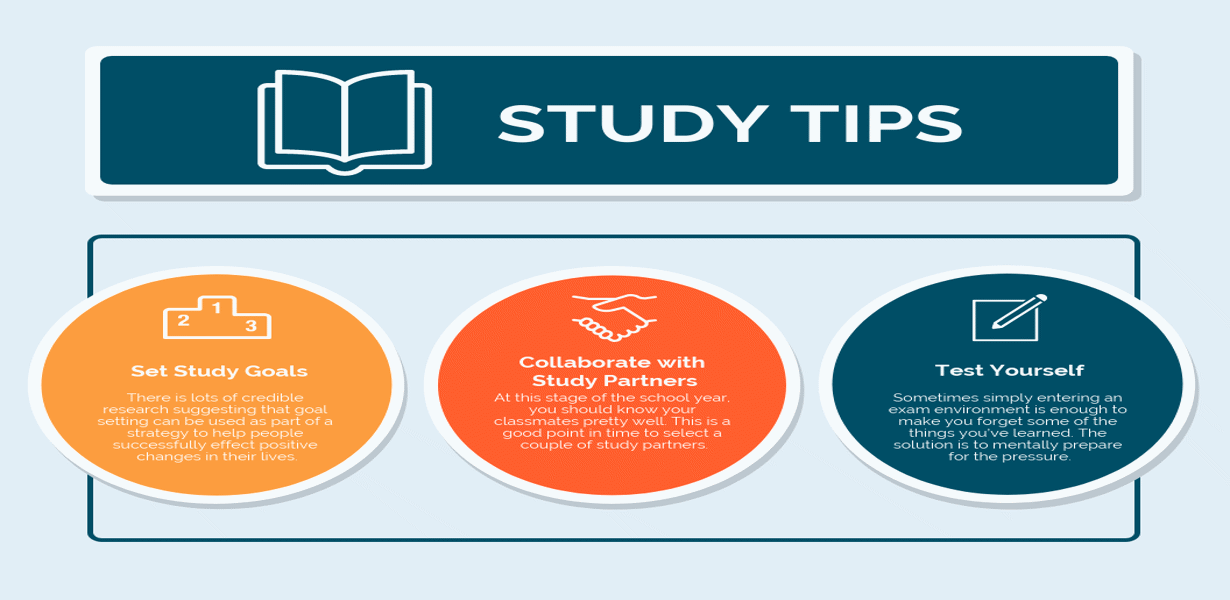
In the quest for academic excellence, we often find ourselves looking for effective study tips and tricks to enhance our learning abilities. The key to success lies in adopting strategies that cater to our individual needs, while also maximizing our comprehension and retention. In this comprehensive guide, we will explore proven methods that can help you unlock your learning potential and achieve your academic goals. From creating a conducive study environment to leveraging powerful mnemonic techniques, we have compiled a range of actionable tips to empower you on your educational journey.
Creating an Optimal Study Environment
The environment in which you study plays a pivotal role in your ability to focus and absorb information effectively. By optimizing your study space, you can enhance your concentration and overall productivity. Consider the following tips to create an environment that promotes deep learning:
1. Eliminate Distractions
Minimize external disruptions that can hinder your concentration. Find a quiet and secluded area where you can study without interruptions. Silence your phone or place it in a different room to avoid the temptation of constantly checking messages and notifications.
2. Enhance Lighting
Proper lighting is essential for maintaining focus and preventing eye strain. Ensure your study area is well-lit, preferably with natural light. If natural light is not available, invest in a good desk lamp that provides adequate illumination.
3. Ergonomic Setup
Comfort is key when it comes to studying for extended periods. Arrange your study area ergonomically to reduce physical strain. Invest in a supportive chair and position your desk at an appropriate height to maintain good posture. This will prevent unnecessary discomfort and allow you to concentrate on your studies.
Effective Study Techniques
Once you have established an optimal study environment, it’s time to delve into powerful study techniques that can enhance your learning and retention. The following tips will help you make the most of your study sessions:
1. Active Learning
Passive reading and memorization are often ineffective when it comes to long-term knowledge retention. Instead, engage in active learning techniques that require your active participation. This can include summarizing information in your own words, teaching concepts to others, or participating in study groups where you can discuss and exchange ideas.
2. Spaced Repetition
Spaced repetition is a highly effective technique for reinforcing learning and improving memory retention. Instead of cramming all your studying into one marathon session, distribute your study time over several shorter sessions. This approach allows for better consolidation of information and increases the likelihood of long-term retention.
3. Mnemonic Devices
Mnemonic devices are memory aids that help you remember information through association. They can take various forms, such as acronyms, visual imagery, or rhymes. By creating mental connections between new information and existing knowledge, mnemonic devices make it easier to recall facts and concepts during exams or when needed.
Frequently Asked Questions (FAQs)
Q1: How can I stay motivated while studying?
A1: Maintaining motivation can be challenging, but there are strategies you can employ to stay on track. Set realistic goals, break your study sessions into manageable chunks, and reward yourself after achieving milestones. Additionally, find inspiration from success stories, surround yourself with supportive peers, and take breaks when needed to prevent burnout.
Q2: What are some effective time management techniques for studying?
A2: Time management is crucial for efficient studying. Consider using techniques like the Pomodoro Technique, where you work in focused bursts with short breaks in between. Prioritize tasks, create a schedule, and eliminate non-essential activities. By allocating specific time slots for studying, you can maximize productivity and make progress toward your goals.
Q3: How can I improve my note-taking skills?
A3: Effective note-taking is a valuable skill that can significantly enhance your learning experience. Opt for concise and organized notes, focusing on key points and relevant details. Use abbreviations, symbols, and diagrams to summarize information effectively. Review and revise your notes regularly to reinforce understanding and improve retention.
Q4: Is it better to study alone or in groups?
A4: The choice between studying alone or in groups depends on personal preference and the subject matter at hand. Studying alone allows for focused concentration, while group study sessions can provide diverse perspectives and foster collaborative learning. Experiment with both approaches to determine what works best for you in different scenarios.
Q5: How can I manage exam anxiety?
A5: Exam anxiety is a common challenge that can negatively impact performance. To manage anxiety, develop a comprehensive study plan, engage in regular exercise and relaxation techniques, and ensure you get sufficient sleep. Practice mock exams to familiarize yourself with the exam format and work on building your confidence through positive self-talk.
Conclusion
By incorporating these study tips and tricks into your academic routine, you can unlock your learning potential and achieve remarkable results. Remember to create an optimal study environment, adopt effective study techniques such as active learning and spaced repetition, and leverage mnemonic devices to enhance your memory retention. Additionally, stay motivated, manage your time wisely, and develop excellent note-taking skills. With dedication and a strategic approach, you can overcome challenges and excel in your educational pursuits. Happy studying!
Advertisement







